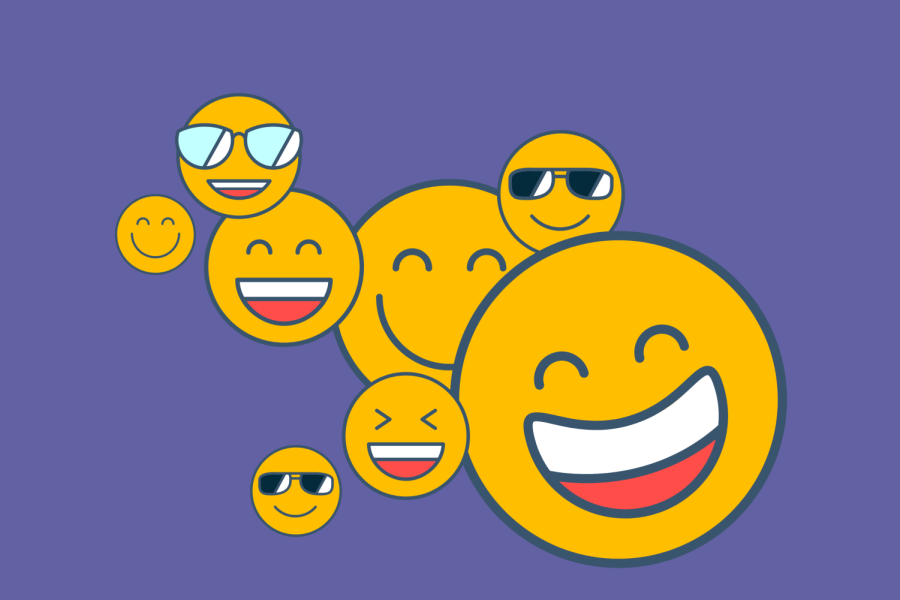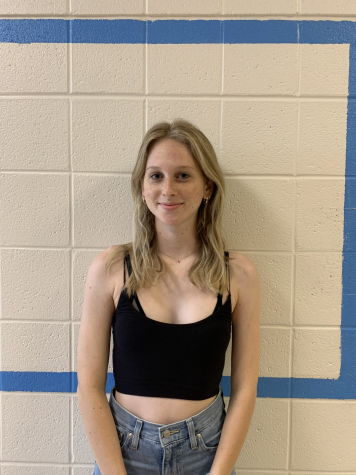Bring well-being to Whitman: our school should offer a happiness class
Happiness doesn’t necessarily mean constant smiles, but Whitman administrators can still aim to increase grins by looking to the famous Yale course.
January 12, 2022
I try to find as much enthusiasm in my activities as possible; I enjoy running up and down the soccer field with my teammates during club practices, going out to eat or shop with friends and even simply taking notes in classes at school. When the coronavirus pandemic took these parts of my life away from me, I found myself struggling to capture the happiness I previously took for granted. While I’ve resumed playing soccer, hanging out with friends and going to in-person school, one thing has yet to improve — my mental health.
The Black & White surveyed 30 students about the extent to which the pandemic has affected their mental health: “not at all,” “a little,” “a moderate amount,” “a lot,” or, the maximum, “a great deal.” About 39 percent of students responded with “a great deal,” and roughly 29 percent said the pandemic has influenced their mental health “a lot.” Notably, none of the 30 respondents answered with “none at all.”
With so many teens struggling to find contentment during wave after wave of a deadly virus, Whitman and MCPS officials need to provide students with resources that support their mental well-being. Specifically, Whitman should offer a happiness class that curriculum designers can model off of “The Science of Well-Being,” a highly successful Yale University course.
The class, formally known as “Psyc 157: Psychology and the Good Life,” encourages students to explore strategies designed to promote positive behavioral changes. For example, students learn about searching for coping skills associated with general happiness.
Professor Laurie Santos taught the class in person in the largest space available on Yale’s campus during the spring 2018 semester. Due to the class’s popularity, Coursera.org created a free version available to the public online, where interest has skyrocketed; since the beginning of the pandemic, almost four million people have enrolled in the class.
In the online course, students track their sleep patterns, keep gratitude journals and perform random acts of kindness; they then note whether these behaviors correlate with an improvement in their well-being. They also learn about the science behind happiness, including why their brains respond to emotion in certain ways and strategies for managing particular psychological reactions.
Making a course like this available to Whitman students — geared toward 14- to 18-year-olds instead of college students and adults — could help students navigate the complicated, messy experience that is high school. The pandemic creates obvious challenges, but a happiness course could benefit students who may be struggling with their mental health for other reasons or who simply want to explore this area of psychology.
To be clear, a happiness class wouldn’t replace medical intervention, and MCPS should consider increasing counseling resources for students at all grade levels so that issues can be spotted and addressed early. At the very least, however, a class would raise awareness that mental health is just as important as physical health and provide students with some tools for self-care.
“Taking time to pay attention to your wellbeing, and learning scientific strategies for improving it, can really be a way that students can improve their wellbeing,” Santos said.
Many students recognize that while there may not be a straightforward way to ensure everyone’s mental health is the best it can be, experimenting with micro-strategies just might make a difference in improving overall happiness.
“Gratitude and being kind to each other could be a small piece of the bigger solution to mental health struggles in teens,” sophomore Dani Klein said.
While Whitman offers AP Psychology, which includes some material that overlaps with Yale’s happiness class, Santos’ course is different in purpose and focus. AP Psychology covers behavior, cognition, motivation, personality and the functions of the human brain and provides students with a foundational understanding of the human mind and its operations. The course consists primarily of lectures and notes, is targeted to a select group of students and doesn’t offer the personalization or in-depth focus on happiness that Santos’ course does.
Junior Amira Tohan, who takes AP Psychology, said she would learn a substantial amount from a class solely focused on happiness.
“I would definitely take this course,” Tohan said. “Having one assembly each year focused on mental health isn’t beneficial to students in the long run, whereas a course like this may be able to genuinely provide that push towards improving mental health.”
Guidance counselor Laura Williams also believes that the introduction of a course like this could help the community.
“As counselors, we’ve definitely seen a lot of students struggling with mental health concerns, anxieties and stress since returning to school,” Williams said.
Through critical discussion, meaningful activities that provide insight toward mental health struggles and education surrounding essential coping skills, a happiness course could help students discover ways to deal with the everyday stressors that seem to be common across grade levels. Approving, developing and finally introducing a new class at Whitman may take time and dedicated staff members, but it would be a tremendous start to providing a forum for students to learn about one of the most essential things in life: happiness.











Matt • Jan 16, 2022 at 5:48 pm
W of an article love to see it